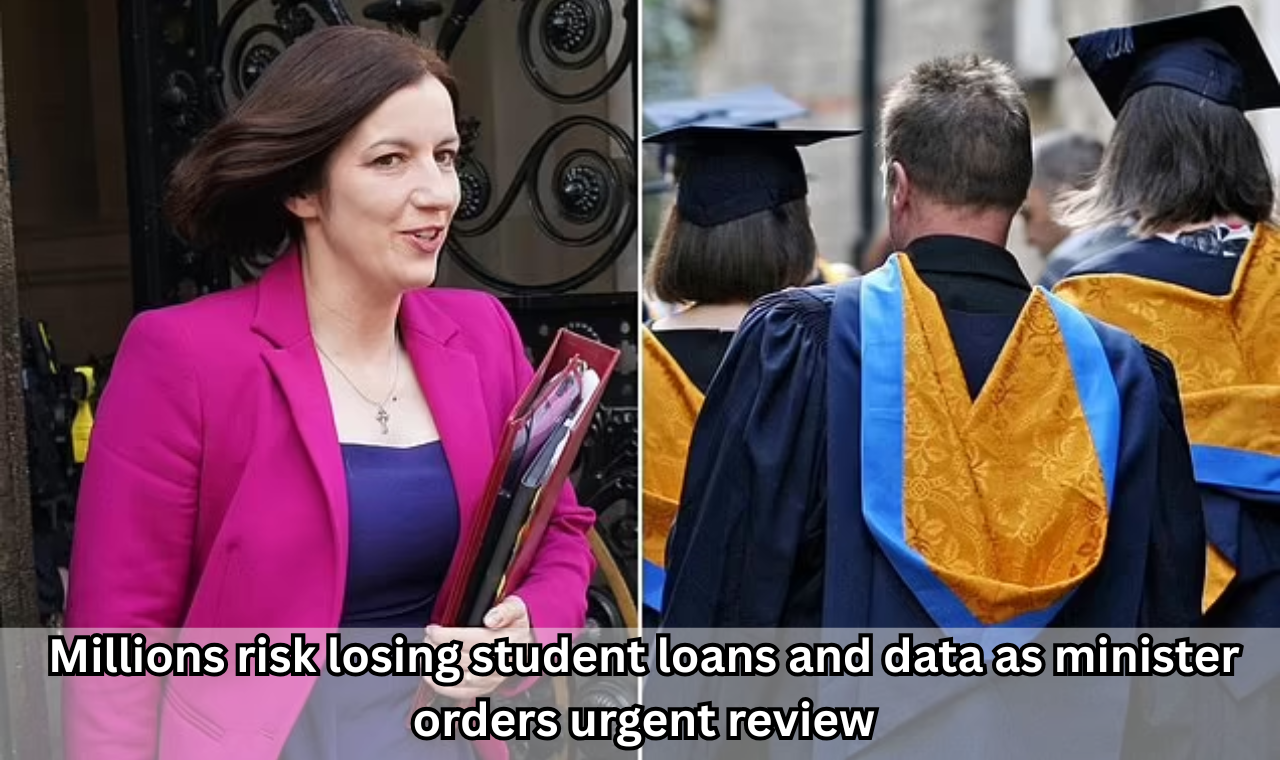The UK’s student loan system is facing a significant crisis, with millions of borrowers at risk of losing access to their loans and personal data exposed to hackers. Recent revelations regarding fraud and a major data breach have prompted an urgent review by the government, raising questions about the security and integrity of the system.
Widespread Fraudulent Claims in Higher Education
A recent investigation by The Sunday Times revealed serious fraudulent activities in the UK’s student loan system. The investigation uncovered that a significant number of students enrolled in higher education programs that are franchised by UK universities—referred to as “franchised providers”—were submitting fraudulent loan applications. These individuals, including foreign nationals, enrolled in courses with no intention of completing their studies. Some families were found to have enrolled multiple members simultaneously, while several loan applications came from the same IP addresses, suggesting a coordinated effort to exploit the system.
This situation has prompted the Department for Education (DfE) to take immediate action. The DfE announced that Oxford Business College (OBC) would be blocked from receiving any further funding for student loans starting in September 2025. The college is accused of facilitating fraudulent claims that totaled over £4 million over the past two years. Although OBC has denied any wrongdoing and plans to legally challenge the decision, the case highlights a serious vulnerability in the student loan process. The DfE is also looking into other institutions that may have been involved in similar activities.
Major Data Breach Exposes Personal Information
In addition to fraud, millions of borrowers have had their personal information exposed in a significant data breach. Nelnet, a major student loan servicer, confirmed that over 2.5 million borrowers had their personal details compromised, including names, addresses, email addresses, phone numbers, and Social Security numbers. Although financial information was reportedly unaffected, the breach has nonetheless raised serious concerns about the security of personal data within the student loan system.
The breach occurred when an unknown actor exploited a vulnerability in Nelnet’s systems. Although Nelnet acted quickly to address the breach and launched an investigation with a third-party cybersecurity firm, the incident has left many borrowers anxious about the safety of their information. Nelnet has notified the U.S. Department of Education, as well as law enforcement agencies, about the breach. The company has also promised to provide affected individuals with resources to monitor their credit and protect against potential identity theft.
For information on how to protect yourself in case of a data breach, you can visit the official Identity Theft Protection page from the U.S. Department of Education.

Government Response and Urgent Review
In response to the mounting issues, Education Secretary Bridget Phillipson has ordered an urgent review of the student loan system. The review will investigate both the fraudulent claims and the data breach, with a focus on improving oversight and security measures. Phillipson described the situation as “one of the biggest financial scandals in the history of our higher education sector,” and emphasized the need for swift action to address the growing risks to both students and taxpayers.
The review is being coordinated by the Public Sector Fraud Authority, which is responsible for investigating allegations of fraud within the public sector. As part of the investigation, the authority is examining how certain higher education providers, particularly those in partnership with universities, were able to facilitate such widespread fraud. The government has also announced plans to introduce new legislation that would give the Office for Students (OfS) greater powers to intervene in cases of fraud and misuse of the student loan system.
The Impact on Borrowers and Taxpayers
The fallout from these incidents is expected to be significant. Millions of borrowers are now uncertain about the status of their loans, and many are worried about the potential consequences of having their personal data exposed. While the government has promised to take action, borrowers are advised to stay vigilant and monitor any communications from their loan servicers or government agencies regarding their accounts.
The National Audit Office (NAO) has estimated that fraudulent activities in the student loan system could cost taxpayers up to £60 million. This situation not only raises concerns about the financial impact on taxpayers but also about the broader implications for the integrity of the UK’s higher education funding system.
The Office for Students (OfS) has promised to enhance its monitoring and regulatory functions to ensure that student loans are only being issued to legitimate borrowers. The OfS is also working closely with universities and loan servicers to identify and prevent further fraudulent claims.
If you are a student or borrower affected by these issues, it is important to stay informed and take steps to protect your personal data. Resources such as credit monitoring services and identity theft protection can help mitigate the risks of having your information exposed.
Conclusion
The ongoing review of the student loan system comes at a crucial time, as millions of borrowers face uncertainty about their loans and the safety of their personal information. The government’s response, led by Education Secretary Bridget Phillipson, aims to address the issues of fraud and data security while ensuring that the student loan system remains fair and transparent. However, it will take time for these measures to be implemented, and in the meantime, borrowers must remain vigilant.

Pankaj Kumar is a skilled content writer at OTE News, focusing on breaking news, technology, and socio-political developments. With a background in Mass Communication, he brings a balanced perspective to his articles, ensuring clarity and reliability. Pankaj has a knack for simplifying complex topics for readers.
In his free time, he enjoys photography, traveling, and experimenting with new cuisines. His curiosity and dedication to truthful reporting make him a valuable contributor to OTE News.




